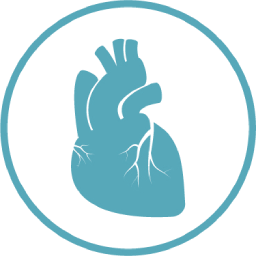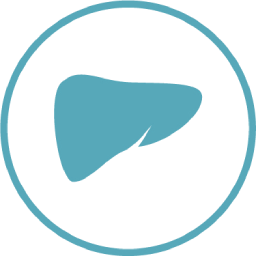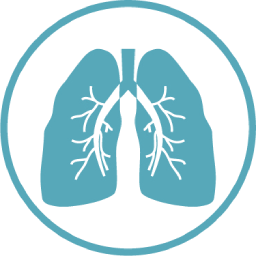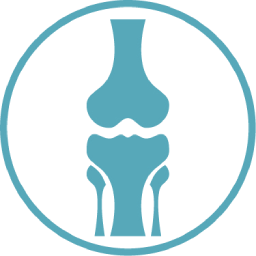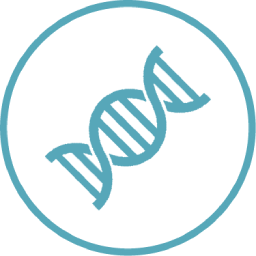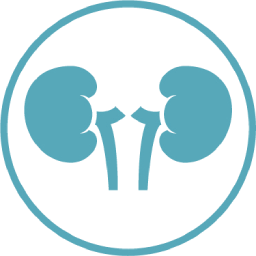Epidemiological consortium for RNA research
EpicRNA
Main Collaborators in
miRNA Research
Small non-coding RNAs (ncRNAs)—including microRNAs (miRNAs), small nucleolar RNAs (snoRNAs), piwi-interacting RNAs (piRNAs), and transfer RNAs (tRNAs) play essential roles in gene regulation, affecting numerous biological pathways. Dysregulation of these ncRNAs can influence critical pathways, such as those involved in cancer progression, cardiovascular health, and neurological functions. In addition, their stability in biofluids, such as plasma, makes them promising biomarkers for early diagnosis, with specific circulating miRNAs already explored as indicators of disease progression and outcomes. Beyond diagnostics, ncRNAs hold promise as therapeutic targets. miRNA-based therapies aim to restore normal gene expression by either inhibiting or enhancing specific miRNA functions. For instance, reducing the activity of oncogenic miRNAs (oncomiRs) is a strategy to limit tumor growth, while miRNA inhibitors, known as antagomirs, are being explored to address cardiovascular dysfunction by targeting dysregulated pathways. This potential positions ncRNAs as valuable tools in the development of targeted therapies for complex diseases.
The Epidemiological consortium for RNA research (EpicRNA) is dedicated to advancing the understanding of non-coding RNAs (ncRNAs) in disease mechanisms and their potential as biomarkers. Through fostering cross-disciplinary collaboration among experts in epidemiology, RNA biology, and clinical research, EpicRNA aims to enhance the tracking and interpretation of RNA-based biomarkers in large-scale, population-based studies. The consortium leverages advanced detection techniques, innovative methodologies, and bioinformatics approaches to identify ncRNAs associated with disease. This approach is focused particularly on exploring new diagnostic avenues for complex conditions, including cardiovascular and neurodegenerative diseases, which require precise molecular insights for early diagnosis and treatment development.
Several large population-based studies have joined the EpicRNA consortium, contributing valuable ncRNA and clinical data across diverse age groups from birth to older adulthood. These include major cohorts such as the Rotterdam Study, the Generation R Study, the Framingham Heart Study, the Rhineland Study, and the Airwave Study, along with other smaller cohorts, representing several thousands of participants aged 0–100 years. This provides comprehensive data to explore the roles of ncRNAs in health and disease. EpicRNA is open to collaborations and welcomes additional cohorts interested in advancing research on ncRNA biomarkers.
Below is a selection of our key collaborators in the EpicRNA consortium:
Prof. Daniel Levy, the Framingham Heart Study (US)
Dr. Levy received a B.A. from the University of Pennsylvania in 1976 and an M.D. from Boston University School of Medicine in 1980. He then completed his residency in internal medicine at University Hospital, Boston and a research fellowship in cardiology at Brigham and Women’s Hospital and Harvard School of Public Health. He joined the NHLBI’s Framingham Heart Study in 1984 and became the Study’s fourth director in 1994. Dr. Levy is also jointly a professor of medicine at Boston University School of Medicine and holds an adjunct faculty appointment at Harvard Medical School. He has been the recipient of many awards for his research accomplishments including two NIH Director’s Awards and the American Heart Association’s Population Research Prize in 2009, the AHA’s highest recognition for research achievements in epidemiology. Dr. Levy is a fellow of the American College of Cardiology and American Heart Association, and he is also a member of the American Society of Hypertension and Heart Failure Society of America. Dr. Levy’s main areas of research interest include the epidemiology and genetics of cardiovascular disease, with a focus on coronary disease, hypertension, and heart failure. He aims to merge the robust clinical and longitudinal data available from the Framingham Heart Study with the latest advances in genomic sciences to gain insight into the complex relations between complex cardiovascular traits and the onset of heart disease. (https://irp.nih.gov/pi/daniel-levy)
Prof. Abbas Dehghan, the Airwave Health Study (UK)
Dr. Dehghan is a medical doctor and an epidemiologist. He studied Epidemiology at Netherlands Institute for Health Sciences (NIHES) and worked with the Rotterdam Study at the department of epidemiology, Erasmus MC in the Netherlands for more than 10 years. In 2016, he joined the Department of Epidemiology and Biostatistics at Imperial College London as an Associate Professor in cardiometabolic disorders. Dr Dehghan is working on the genetics of omics, in particular metabolomics, and applying Mendelian Randomisation (MR) approach to investigate causal determinants of complex traits and diseases including cardiometabolic disorders, dementia and cancers. He is a member of the steering committee of the Cohorts for Heart and Aging Research in Genomic Epidemiology (CHARGE) Consortium and has led or been involved in many genome-wide association (GWAS) studies. Since January 2020, he is also the director of postgraduate research at the school of public health, Imperial College London. (https://www.imperial.ac.uk/people/a.dehghan)
Dr. Ahmad Aziz, the Rhineland Study (Germany)
Dr. Aziz is a neurologist and epidemiologist, currently serving as a group leader in Population and Clinical Neuroepidemiology at the German Center for Neurodegenerative Diseases (DZNE) in Bonn. His research focuses mainly on the interplay between genetic and neuroanatomical factors in the development of neurodegenerative diseases. His work employs advanced epidemiological and bioinformatics approaches to identify risk factors and biomarkers associated with conditions like Huntington’s , Parkinson’s, and Alzheimer’s disease. Dr. Aziz leads several innovative projects, including investigating the impact of genomic tandem repeat variations on brain structure and cognitive function, exploring the neuroanatomical basis of motor function across the lifespan, and examining hypothalamic dysfunction as a potential driver of age-related cognitive decline. His dedication to understanding the complexities of neurodegeneration aims to inform preventive and therapeutic strategies that enhance cognitive health and overall well-being.
Dr. Charlotte Cecil, the Generation R Study (Netherlands)
Dr. Cecil is an Associate Professor at Erasmus MC, where she contributes to both the Department of Child and Adolescent Psychiatry and the Department of Epidemiology. With a strong academic background in developmental psychopathology, she earned her BSc in Psychology from Royal Holloway, University of London, and an MSc in Forensic Psychology from the University of Surrey. She completed her PhD at University College London, investigating the effects of childhood trauma on cognitive, emotional, and behavioral functioning. Dr. Cecil’s research interests lie at the intersection of early life experiences and biological psychiatry. After her postdoctoral work at King’s College London, she became the lead for the Biological Psychopathology research line within the Generation R Study, one of the world’s largest longitudinal studies tracking nearly 10,000 children from pregnancy through adolescence. In addition to her research, she co-founded the Methylation, Imaging and Neuro-Development (MIND) consortium and holds leadership roles in several other international research consortia.
Other Collaborators
Dr. Stefan Erkeland
Dr. Erkeland is an Associate Professor and group leader at the Department of Immunology in the Erasmus MC Rotterdam, the Netherlands. As a post-doc, he was granted with a KWF-fellowship that allowed him to move to the lab of Nobel Prize winner Professor P.A. Sharp, MIT, Cambridge, MA, which is the leading investigator in RNA biology. In his lab, he investigated the role of newly-discovered RNA species, the so-called microRNAs, in human cancer including hematopoietic disorders. In this period, he extended his international scientific network with collaborations with members of the Hynes lab and Jacks lab at MIT. Then, he was awarded with a NWO-VENI and two KWF grants, which allowed him to setup his research group at the Hematology department of the Erasmus MC. Next, he moved to the immunology department of Erasmus MC to coordinate three major research lines on HSCs and non-coding RNA in leukemia. In addition to research, he teaches students at the Erasmus MC and Delft University, review international manuscripts and grant proposals and supervise yearly bachelor and master students.
https://www.immunology.nl/research/stefan-erkeland/
Dr. Rima Mustafa
Rima holds a medical degree from Gadjah Mada University, Indonesia, and MSc and PhD in Molecular Epidemiology from Imperial College London. During her PhD at the Department of Epidemiology and Biostatistics at ICL, she was working on the role of microRNAs in complex disorders using extensive genetic, molecular, and clinical data in population-based cohorts, such as the Rotterdam Study and the UK Biobank. In particular, she was the analyst of one of our comprehensive microRNA projects on the genetic regulation, omics integration and disease association of microRNAs. Rima has recently moved to the Nuffield Department of Population Health at University of Oxford.
Rima Mustafa — Nuffield Department of Population Health (ox.ac.uk).

Dr. Stefan Erkeland
Dr. Erkeland is an Associate Professor and group leader at the Department of Immunology in the Erasmus MC Rotterdam, the Netherlands. As a post-doc, he was granted with a KWF-fellowship that allowed him to move to the lab of Nobel Prize winner Professor P.A. Sharp, MIT, Cambridge, MA, which is the leading investigator in RNA biology. In his lab, he investigated the role of newly-discovered RNA species, the so-called microRNAs, in human cancer including hematopoietic disorders. In this period, he extended his international scientific network with collaborations with members of the Hynes lab and Jacks lab at MIT. Then, he was awarded with a NWO-VENI and two KWF grants, which allowed him to setup his research group at the Hematology department of the Erasmus MC. Next, he moved to the immunology department of Erasmus MC to coordinate three major research lines on HSCs and non-coding RNA in leukemia. In addition to research, he teaches students at the Erasmus MC and Delft University, review international manuscripts and grant proposals and supervise yearly bachelor and master students. (https://www.immunology.nl/research/stefan-erkeland/)
Follow US
on These Social Media or Websites



